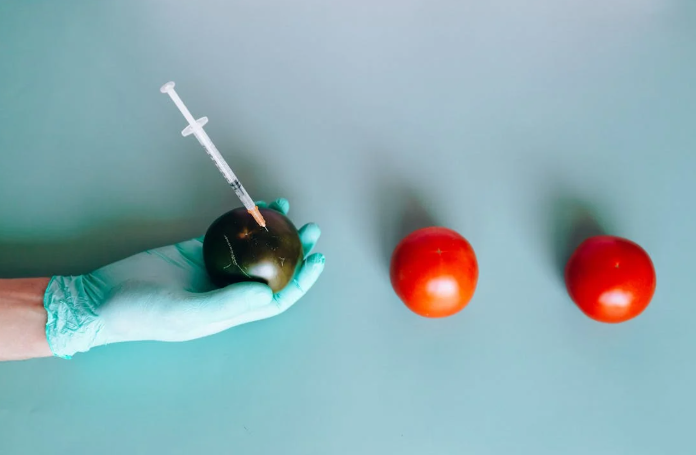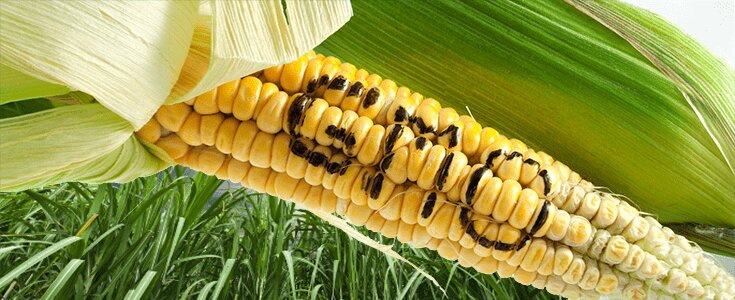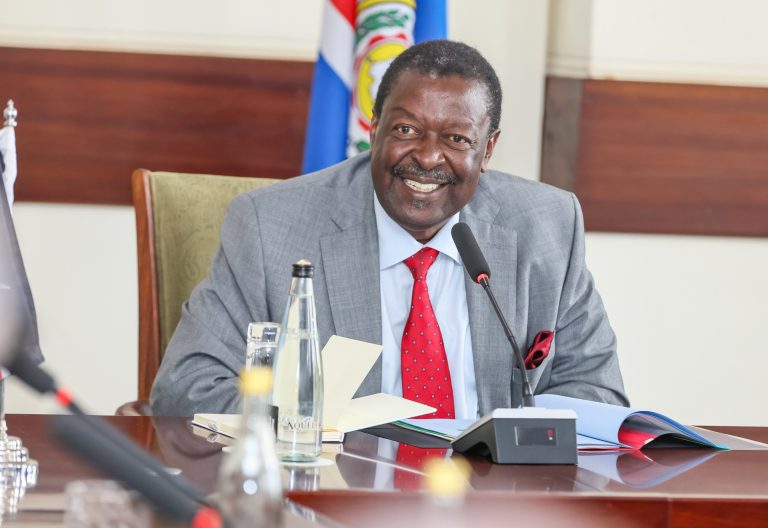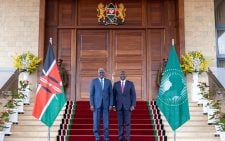Kalonzo protests government’s move to lift ban on GMO crops

Wiper party leader Kalonzo Musyoka has criticized President William Ruto’s government over the recent move to lift the ban on genetically modified crops.
Addressing journalists in Nairobi on Tuesday, October 11, the former Vice President said GMOs will not only threaten the livelihoods of small-scale farmers in the country but also pose a threat to the health of every Kenyan.
“Kenya lacks adequate capacity to test for GMO traits and the impact it has on health. We, therefore, place the lives and livelihoods of our people at very serious risk by admitting GMOs into Kenya,” Kalonzo stated.
The Cabinet approved the lifting of the ban on Monday, October 3, paving way for the cultivation and importation of GMO crops including maize after a decade.
In a statement, the government said the lifting of the ban imposed in 2012 will improve food security in the country amid the ravaging drought that has caused hunger in more than 20 counties.
“In accordance with the recommendation of the Task Force to Review Matters Relating to Genetically Modified Foods and Food Safety, and in fidelity with the guidelines of the National Biosafety Authority on all applicable international treaties including the Cartagena Protocol on Biosafety (CPB), Cabinet vacated its earlier decision of 8th November 2012 prohibiting the open cultivation of genetically modified crops and the importation of food crops and animal feeds produced through biotechnology innovations; effectively lifting the ban on Genetically Modified Crops,” the government said.
But in his statement, Kalonzo alleged that the lifting of the ban was based on skewed research sponsored by multinationals with certain interests in GMO technology.
“Against the backdrop of this lift, the Ruto administration had met several delegations who have been aggressively lobbying for the lift of the of GMO ban in Kenya. We are also aware that these multinationals have sponsored skewed research on GMO biotechnology calculated to reach a desired outcome,” he alleged.
He claimed National Biosafety Authority (NBA), the body tasked with the responsibility to regulate genetically modified organisms in the country, had compromised and was no longer neutral.
“We have noticed with concern the way in which the regulator is one of the lead promoters of GMOs in Kenya. What is their motivation?” Kalonzo questioned.
He said the long-term effects of GMOs in Kenya ‘outweigh the short-term benefits if there are any’.
Kalonzo’s concerns
According to the Wiper boss, the lifting of the ban is likely to expose the Kenyan multi-billion food market susceptible to manipulation by profit-hungry multinationals, handing over the country’s food sovereignty to corporate manipulators.
With the opening of the importation of GMO maize, Kalonzo said, Kenya’s generic seed companies and small-scale farming risk dying out as a result of unfair competition from subsidized GMOs and corporate capture by the multinationals.
He also warned that Kenya risks losing its national pride in the identity of the organic seeds to mutated forms of crops.
“GM crops cannot co-exist with organic and non-GM crops due to contamination. Moreover, who will compensate our farmers for their lost livelihoods and lost heritage in case of such contamination?” Kalonzo posed.
“Kenya lacks adequate capacity to test for GMO traits and the impact it has on health. We, therefore, place the lives and livelihoods of our people at very serious risk by admitting GMOs into Kenya,” he added.
Kalonzo also argued that the lifting of the ban is likely to jeopardise Kenya’s trade relations with other countries within the East African Community (EACC, which he says were not consulted by the Ruto-led administration.
“Admittance of GMOs into Kenya will also affect multilateralism, especially within the EAC whereby our neighbouring countries that have banned GMOs and who export maize to Kenya will not be able to compete with the cheaper subsidized GMO maize,” Kalonzo warned.
“Moreover, having not been consulted by the Ruto administration, the ban on GMOs will jeopardize trade within the EAC and cause unnecessary trade restrictions as the non-GM neighbouring countries attempt to protect their citizens from Kenyan GMO crops.”
He accused the clergy of aiding the re-introduction of the supposed harmful crops in the country due to their silence on the matter.
“As crusaders of moral practice, we are also surprised by the silence of religious institutions, and specifically the Church which were once vibrant and vehemently against GMOs. Could it be that they have been pacified by this new administration and blinded to the moral and ethical question around GMOs that go against the order of nature?” he posed.
“We urge our religious leaders and faith-based organisations not to sell their soul and they ought to speak truth to power at the altar of commercial interests and political expediency.”
To solve the food crisis, the Wiper boss cautioned the country against over-reliance on maize food and encouraged Kenyans to ‘diversify their eating culture.’
“Food security should not be premised on maize consumption alone. There are other varieties of organic foods such as sorghum, millet, sweet potatoes, cassava, etc that can complement or substitute shortage of maize diet,” he added.
“Kenyans ought to be sensitized on the need to diversify their eating culture and demonopolize their dependency on a few staples like maize and rice.”
He also encouraged the government to support farmers with affordable farm inputs to boost production in the country.
“The low cost of BT maize is a result of highly subsidized farm implements and sophisticated mechanised agricultural practices in other countries. Even if our farmers adopt the BT maize seed, this will not bring down the cost of maize since the price is artificially manipulated by profit-oriented multinationals,” Kalonzo stated.
“The government can plug this deficit by supporting our farmers to produce more through better
extension services, inputs, climate resilient, and agroecological practices, reduce post-harvest losses and
trade with our non-GM neighbours rather than resorting to the importation of risky GMO maize.”















